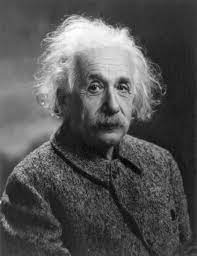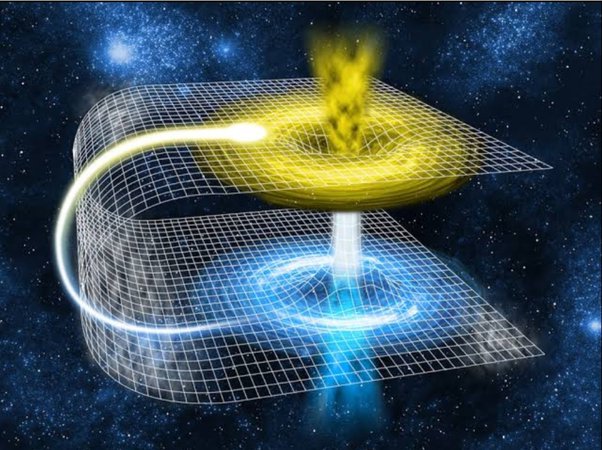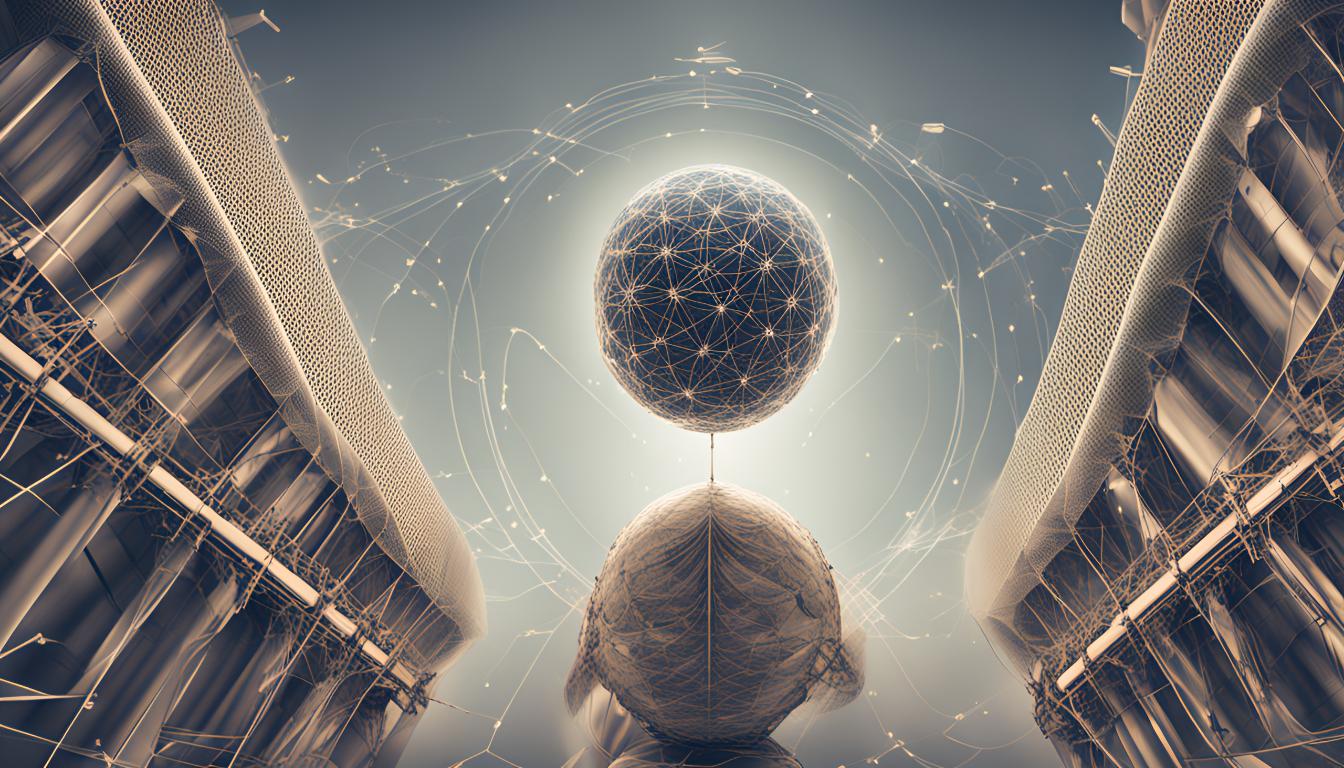


Published in others
Published in others



May 11, 2024
May 11, 2024
May 11, 2024
Exploring the Possibility of Time Travel: Fact or Fiction?
Exploring the Possibility of Time Travel: Fact or Fiction?
Exploring the Possibility of Time Travel: Fact or Fiction?
Time travel has long captured the imagination of scientists, writers, and dreamers alike. From the pages of science fiction novels to the big screen, the concept of journeying through time has tantalized us with its promise of adventure, intrigue, and the ability to rewrite history. But is time travel merely a figment of our imagination, or could it someday become a reality? In this blog, we'll delve into the fascinating world of time travel, exploring the scientific theories, technological possibilities, and philosophical implications of traversing the fourth dimension.
Time travel has long captured the imagination of scientists, writers, and dreamers alike. From the pages of science fiction novels to the big screen, the concept of journeying through time has tantalized us with its promise of adventure, intrigue, and the ability to rewrite history. But is time travel merely a figment of our imagination, or could it someday become a reality? In this blog, we'll delve into the fascinating world of time travel, exploring the scientific theories, technological possibilities, and philosophical implications of traversing the fourth dimension.
Time travel has long captured the imagination of scientists, writers, and dreamers alike. From the pages of science fiction novels to the big screen, the concept of journeying through time has tantalized us with its promise of adventure, intrigue, and the ability to rewrite history. But is time travel merely a figment of our imagination, or could it someday become a reality? In this blog, we'll delve into the fascinating world of time travel, exploring the scientific theories, technological possibilities, and philosophical implications of traversing the fourth dimension.

Title: Unlocking the Mysteries of Time Travel: Exploring the Feasibility, Challenges, and Implications
Introduction: The concept of time travel has ignited the human imagination for centuries, captivating scientists, philosophers, and storytellers alike. From the pages of science fiction novels to the halls of academia, the possibility of journeying backward or forward in time has fascinated us with its tantalizing promise of adventure and discovery. In this comprehensive exploration, we delve into the complex and intriguing world of time travel, examining the theoretical foundations, technological hurdles, and philosophical implications of this enigmatic phenomenon.
Theoretical Foundations: At the heart of the quest for time travel lies the theory of relativity, formulated by Albert Einstein in the early 20th century. According to Einstein's equations, time is not an absolute, immutable quantity but rather a dimension intricately linked with space in what is known as spacetime. This revolutionary insight paved the way for understanding how gravity and velocity can warp the fabric of spacetime, potentially creating pathways for traversing the fourth dimension.

Wormholes and Black Holes: One of the most tantalizing prospects for time travel arises from the theoretical existence of wormholes—hypothetical tunnels through spacetime that could connect distant regions of the universe. While wormholes remain speculative constructs, some physicists postulate that they could serve as portals for traversing vast cosmic distances and, perhaps, even facilitating journeys through time. Similarly, the extreme gravitational fields surrounding black holes have led to conjecture about their potential as natural time machines, albeit with significant risks and uncertainties.

Quantum Mechanics and Temporal Paradoxes: The principles of quantum mechanics offer another intriguing avenue for exploring the possibility of time travel. Quantum phenomena such as entanglement and superposition suggest that particles can exist in multiple states simultaneously, raising the tantalizing possibility of parallel timelines and alternate realities. However, the notion of time travel also gives rise to thorny paradoxes, such as the famous "grandfather paradox," in which altering the past could theoretically lead to contradictions and inconsistencies that defy logical explanation.

Technological Challenges: While the theoretical framework for time travel is firmly rooted in the principles of physics, the practical realization of this phenomenon presents formidable challenges. Achieving the energy levels required to create and stabilize a traversable wormhole, for example, would necessitate technological advancements far beyond our current capabilities. Moreover, the ethical and existential implications of time travel—from the potential for altering historical events to the paradoxes of causality—raise profound questions that transcend mere scientific inquiry.
Philosophical Implications: Beyond the realm of science and technology, time travel poses profound philosophical questions about the nature of existence, free will, and the fabric of reality itself. If time travel were possible, would it be ethical to change the course of history or intervene in past events? How would the existence of multiple timelines and alternate realities impact our understanding of identity and consciousness? These existential quandaries underscore the far-reaching implications of tampering with the fundamental laws of time and space.
Conclusion: As we contemplate the tantalizing prospect of time travel, we find ourselves standing at the crossroads of scientific speculation, technological ambition, and philosophical inquiry. While the realization of time travel remains an elusive dream, its pursuit serves as a testament to the boundless curiosity and imagination of the human spirit. Whether as scientists pushing the boundaries of theoretical physics, writers crafting tales of temporal adventure, or dreamers envisioning the possibilities of alternate realities, we are all voyagers in the quest to unlock the mysteries of time.
In this detailed exploration, we've delved into the multifaceted world of time travel, examining its theoretical underpinnings, technological challenges, and philosophical implications. While the realization of time travel remains a distant horizon, its allure and intrigue continue to inspire us to contemplate the mysteries of the cosmos and the boundless possibilities that lie beyond.

Title: Unlocking the Mysteries of Time Travel: Exploring the Feasibility, Challenges, and Implications
Introduction: The concept of time travel has ignited the human imagination for centuries, captivating scientists, philosophers, and storytellers alike. From the pages of science fiction novels to the halls of academia, the possibility of journeying backward or forward in time has fascinated us with its tantalizing promise of adventure and discovery. In this comprehensive exploration, we delve into the complex and intriguing world of time travel, examining the theoretical foundations, technological hurdles, and philosophical implications of this enigmatic phenomenon.
Theoretical Foundations: At the heart of the quest for time travel lies the theory of relativity, formulated by Albert Einstein in the early 20th century. According to Einstein's equations, time is not an absolute, immutable quantity but rather a dimension intricately linked with space in what is known as spacetime. This revolutionary insight paved the way for understanding how gravity and velocity can warp the fabric of spacetime, potentially creating pathways for traversing the fourth dimension.

Wormholes and Black Holes: One of the most tantalizing prospects for time travel arises from the theoretical existence of wormholes—hypothetical tunnels through spacetime that could connect distant regions of the universe. While wormholes remain speculative constructs, some physicists postulate that they could serve as portals for traversing vast cosmic distances and, perhaps, even facilitating journeys through time. Similarly, the extreme gravitational fields surrounding black holes have led to conjecture about their potential as natural time machines, albeit with significant risks and uncertainties.

Quantum Mechanics and Temporal Paradoxes: The principles of quantum mechanics offer another intriguing avenue for exploring the possibility of time travel. Quantum phenomena such as entanglement and superposition suggest that particles can exist in multiple states simultaneously, raising the tantalizing possibility of parallel timelines and alternate realities. However, the notion of time travel also gives rise to thorny paradoxes, such as the famous "grandfather paradox," in which altering the past could theoretically lead to contradictions and inconsistencies that defy logical explanation.

Technological Challenges: While the theoretical framework for time travel is firmly rooted in the principles of physics, the practical realization of this phenomenon presents formidable challenges. Achieving the energy levels required to create and stabilize a traversable wormhole, for example, would necessitate technological advancements far beyond our current capabilities. Moreover, the ethical and existential implications of time travel—from the potential for altering historical events to the paradoxes of causality—raise profound questions that transcend mere scientific inquiry.
Philosophical Implications: Beyond the realm of science and technology, time travel poses profound philosophical questions about the nature of existence, free will, and the fabric of reality itself. If time travel were possible, would it be ethical to change the course of history or intervene in past events? How would the existence of multiple timelines and alternate realities impact our understanding of identity and consciousness? These existential quandaries underscore the far-reaching implications of tampering with the fundamental laws of time and space.
Conclusion: As we contemplate the tantalizing prospect of time travel, we find ourselves standing at the crossroads of scientific speculation, technological ambition, and philosophical inquiry. While the realization of time travel remains an elusive dream, its pursuit serves as a testament to the boundless curiosity and imagination of the human spirit. Whether as scientists pushing the boundaries of theoretical physics, writers crafting tales of temporal adventure, or dreamers envisioning the possibilities of alternate realities, we are all voyagers in the quest to unlock the mysteries of time.
In this detailed exploration, we've delved into the multifaceted world of time travel, examining its theoretical underpinnings, technological challenges, and philosophical implications. While the realization of time travel remains a distant horizon, its allure and intrigue continue to inspire us to contemplate the mysteries of the cosmos and the boundless possibilities that lie beyond.

Title: Unlocking the Mysteries of Time Travel: Exploring the Feasibility, Challenges, and Implications
Introduction: The concept of time travel has ignited the human imagination for centuries, captivating scientists, philosophers, and storytellers alike. From the pages of science fiction novels to the halls of academia, the possibility of journeying backward or forward in time has fascinated us with its tantalizing promise of adventure and discovery. In this comprehensive exploration, we delve into the complex and intriguing world of time travel, examining the theoretical foundations, technological hurdles, and philosophical implications of this enigmatic phenomenon.
Theoretical Foundations: At the heart of the quest for time travel lies the theory of relativity, formulated by Albert Einstein in the early 20th century. According to Einstein's equations, time is not an absolute, immutable quantity but rather a dimension intricately linked with space in what is known as spacetime. This revolutionary insight paved the way for understanding how gravity and velocity can warp the fabric of spacetime, potentially creating pathways for traversing the fourth dimension.

Wormholes and Black Holes: One of the most tantalizing prospects for time travel arises from the theoretical existence of wormholes—hypothetical tunnels through spacetime that could connect distant regions of the universe. While wormholes remain speculative constructs, some physicists postulate that they could serve as portals for traversing vast cosmic distances and, perhaps, even facilitating journeys through time. Similarly, the extreme gravitational fields surrounding black holes have led to conjecture about their potential as natural time machines, albeit with significant risks and uncertainties.

Quantum Mechanics and Temporal Paradoxes: The principles of quantum mechanics offer another intriguing avenue for exploring the possibility of time travel. Quantum phenomena such as entanglement and superposition suggest that particles can exist in multiple states simultaneously, raising the tantalizing possibility of parallel timelines and alternate realities. However, the notion of time travel also gives rise to thorny paradoxes, such as the famous "grandfather paradox," in which altering the past could theoretically lead to contradictions and inconsistencies that defy logical explanation.

Technological Challenges: While the theoretical framework for time travel is firmly rooted in the principles of physics, the practical realization of this phenomenon presents formidable challenges. Achieving the energy levels required to create and stabilize a traversable wormhole, for example, would necessitate technological advancements far beyond our current capabilities. Moreover, the ethical and existential implications of time travel—from the potential for altering historical events to the paradoxes of causality—raise profound questions that transcend mere scientific inquiry.
Philosophical Implications: Beyond the realm of science and technology, time travel poses profound philosophical questions about the nature of existence, free will, and the fabric of reality itself. If time travel were possible, would it be ethical to change the course of history or intervene in past events? How would the existence of multiple timelines and alternate realities impact our understanding of identity and consciousness? These existential quandaries underscore the far-reaching implications of tampering with the fundamental laws of time and space.
Conclusion: As we contemplate the tantalizing prospect of time travel, we find ourselves standing at the crossroads of scientific speculation, technological ambition, and philosophical inquiry. While the realization of time travel remains an elusive dream, its pursuit serves as a testament to the boundless curiosity and imagination of the human spirit. Whether as scientists pushing the boundaries of theoretical physics, writers crafting tales of temporal adventure, or dreamers envisioning the possibilities of alternate realities, we are all voyagers in the quest to unlock the mysteries of time.
In this detailed exploration, we've delved into the multifaceted world of time travel, examining its theoretical underpinnings, technological challenges, and philosophical implications. While the realization of time travel remains a distant horizon, its allure and intrigue continue to inspire us to contemplate the mysteries of the cosmos and the boundless possibilities that lie beyond.